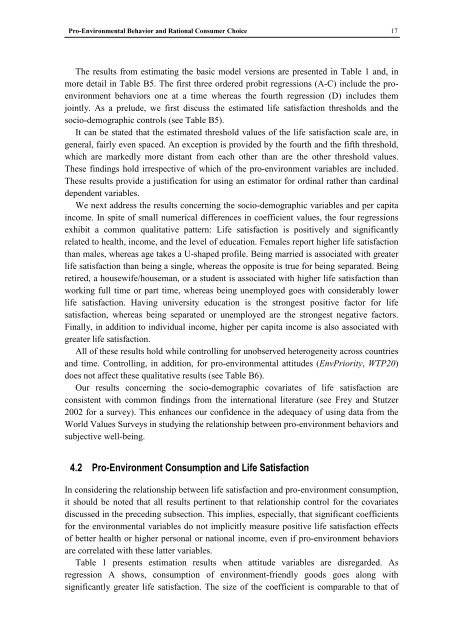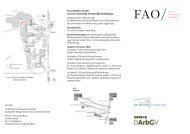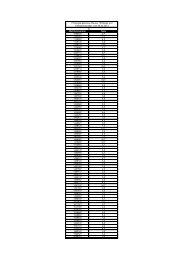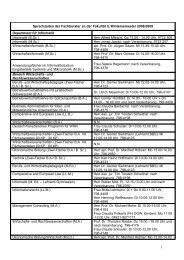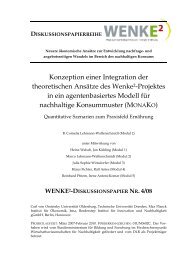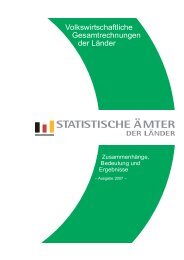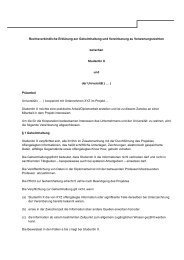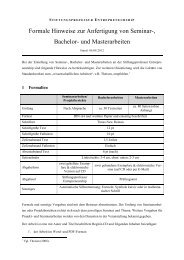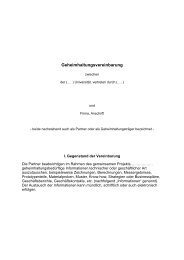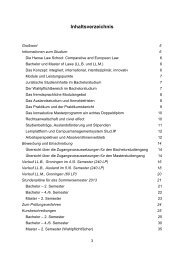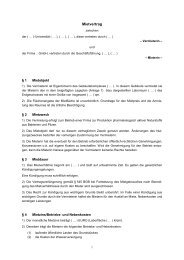Pro-Environmental Behavior and Rational Consumer Choice
Pro-Environmental Behavior and Rational Consumer Choice
Pro-Environmental Behavior and Rational Consumer Choice
Create successful ePaper yourself
Turn your PDF publications into a flip-book with our unique Google optimized e-Paper software.
<strong>Pro</strong>-<strong>Environmental</strong> <strong>Behavior</strong> <strong>and</strong> <strong>Rational</strong> <strong>Consumer</strong> <strong>Choice</strong> 17<br />
The results from estimating the basic model versions are presented in Table 1 <strong>and</strong>, in<br />
more detail in Table B5. The first three ordered probit regressions (A-C) include the proenvironment<br />
behaviors one at a time whereas the fourth regression (D) includes them<br />
jointly. As a prelude, we first discuss the estimated life satisfaction thresholds <strong>and</strong> the<br />
socio-demographic controls (see Table B5).<br />
It can be stated that the estimated threshold values of the life satisfaction scale are, in<br />
general, fairly even spaced. An exception is provided by the fourth <strong>and</strong> the fifth threshold,<br />
which are markedly more distant from each other than are the other threshold values.<br />
These findings hold irrespective of which of the pro-environment variables are included.<br />
These results provide a justification for using an estimator for ordinal rather than cardinal<br />
dependent variables.<br />
We next address the results concerning the socio-demographic variables <strong>and</strong> per capita<br />
income. In spite of small numerical differences in coefficient values, the four regressions<br />
exhibit a common qualitative pattern: Life satisfaction is positively <strong>and</strong> significantly<br />
related to health, income, <strong>and</strong> the level of education. Females report higher life satisfaction<br />
than males, whereas age takes a U-shaped profile. Being married is associated with greater<br />
life satisfaction than being a single, whereas the opposite is true for being separated. Being<br />
retired, a housewife/houseman, or a student is associated with higher life satisfaction than<br />
working full time or part time, whereas being unemployed goes with considerably lower<br />
life satisfaction. Having university education is the strongest positive factor for life<br />
satisfaction, whereas being separated or unemployed are the strongest negative factors.<br />
Finally, in addition to individual income, higher per capita income is also associated with<br />
greater life satisfaction.<br />
All of these results hold while controlling for unobserved heterogeneity across countries<br />
<strong>and</strong> time. Controlling, in addition, for pro-environmental attitudes (EnvPriority, WTP20)<br />
does not affect these qualitative results (see Table B6).<br />
Our results concerning the socio-demographic covariates of life satisfaction are<br />
consistent with common findings from the international literature (see Frey <strong>and</strong> Stutzer<br />
2002 for a survey). This enhances our confidence in the adequacy of using data from the<br />
World Values Surveys in studying the relationship between pro-environment behaviors <strong>and</strong><br />
subjective well-being.<br />
4.2 <strong>Pro</strong>-Environment Consumption <strong>and</strong> Life Satisfaction<br />
In considering the relationship between life satisfaction <strong>and</strong> pro-environment consumption,<br />
it should be noted that all results pertinent to that relationship control for the covariates<br />
discussed in the preceding subsection. This implies, especially, that significant coefficients<br />
for the environmental variables do not implicitly measure positive life satisfaction effects<br />
of better health or higher personal or national income, even if pro-environment behaviors<br />
are correlated with these latter variables.<br />
Table 1 presents estimation results when attitude variables are disregarded. As<br />
regression A shows, consumption of environment-friendly goods goes along with<br />
significantly greater life satisfaction. The size of the coefficient is comparable to that of


